How Fast Can an Electric Car Go?
Electric car speed fascinates most auto enthusiasts. It’s all about how these cars harness power from their batteries. The motors are designed to access all the power from the battery nearly instantly, meaning electric vehicles can achieve incredible 0-60mph times. It’s an impressive feat for ingenuity. Just imagine, EVs like the Lotus Evija can sprint to 60mph in less than 3 seconds! If you’re itching to experience that speed, why not explore these high-speed club members further?
Factors Affecting the Speed of an Electric Car
1. Electric Car Battery Size
The size of the battery doesn’t determine the speed, but it does determine how long your car can maintain a particular speed. So, if you’ve got a larger battery like 100kWh, your EV can go further at high speeds, unlike with a smaller 40kWh battery. However, the battery size primarily influences the driving range, not speed. Larger batteries do add more weight to an EV, sometimes resulting in a slower car. For instance, Nissan LEAF‘s battery capacity increased from 30kW to 40kW, improving the driving range, not the speed.
2. Electric Car Motor Power
Motor power plays a crucial role in determining the speed of an electric car. It’s like the heart pumping life to the vehicle’s speed thrill. An EV using four separate motors, like in the Niro EP9, chalks up a whopping speed of 196mph with its hefty power rating of 1341 horsepower.
Dual motors are more common for their balance between power and efficiency. Performance-minded EVs like the Audi e-Tron GT, Kia EV6 GT, and Porsche Taycan are offered with dual motor options. These vehicles are able to put the power down and utilize the torque and control that dual motors offer. Alternatively, the Subaru Solterra, an off-road-oriented EV, uses its dual motors to balance the car when on uneven terrain.
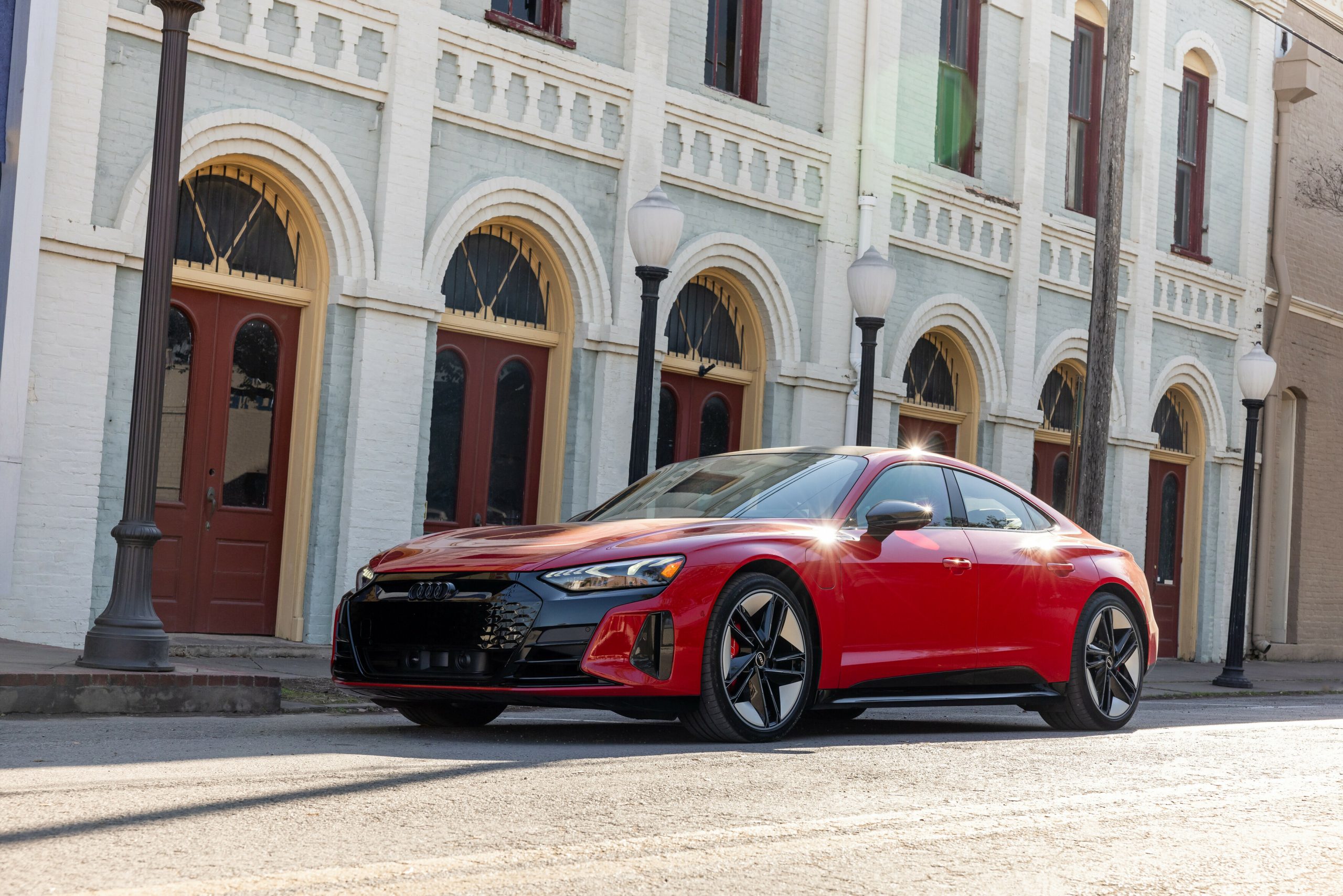
Image Courtesy of Audi
3. Driving Conditions
Firstly, your driving speed greatly affects your EV’s range. A heavy foot and frequent high acceleration use up more battery, decreasing the distance you can cover on one charge. Remember, even a drop from 70mph to 65mph can significantly extend your range.
Secondly, weather plays a pivotal role. Cold temperatures slow down battery chemistries, reducing charge capacity. AAA found the driving range decreases by 41% at 20°F with the heating on. So, consider warming up your EV before heading out in cold weather.
Lastly, the usage of electrically powered features like heating and cooling can impact how far your EV can go. Try to use these features conservatively if you’re looking to extend the range of your EV as far as it can go.
4. Electric Car Battery Technology
The size of the battery is just one aspect that determines its performance. The battery’s chemistry, management system and even the car’s weight and aerodynamics play integral roles in how it functions.
Here’s what matters:
- Large batteries often mean greater range and horsepower.
- The speed at which lithium ions move within the battery affects charging speed.
- Fast charging may lead to battery overheating and degradation.
- The battery’s capacity to receive power caps the charging speed. For instance, a large powerful charger may offer 350 kilowatts, but your car’s battery may only be able to accept 150 kilowatts.
5. Electric Car Weight
In simple terms, when it comes to electric cars, lighter weight makes for better speed. The weight of an electric car directly affects its performance in terms of speed and mileage. Less weight equals more speed. For instance, an EV weighing just 3,592 pounds can reach zero to 60mph in under a sensational 2.6 seconds. A lighter EV consumes less energy to move, thus potentially extending the range between charges. A larger battery may afford a car more mileage but it adds to its weight. You’ll need to strike a balance between battery size and total weight to preserve speed while ensuring adequate range.
Weight and power can influence the performance of an EV on many fronts. The better the power-to-weight ratio, essentially more power, and less weight, the fast the car will be. With an EV, a lot of its ability to accelerate quickly relies on having a larger battery.
Mileage too, is influenced by the EV’s weight. Research shows that even minor changes in speed can significantly impact an EV’s battery consumption. Driving habits also matter. Regular heavy acceleration can rapidly drain an EV’s battery, reducing its speed over time. Be more gentle on the accelerator to maintain optimal speed.
6. Electric Car Wheels
Firstly, the size of your electric car’s wheels significantly impacts speed. Larger wheels can offer a faster top speed but may accelerate slower, while smaller ones provide quick acceleration but a lower top speed. The material of the wheels is crucial too. Light materials like aluminum can bolster speed and efficiency, as less energy is used to turn the wheel. Lastly, wheel design has a role in aerodynamics. Aerodynamic wheels reduce air resistance, boosting the car’s speed, especially at high velocities.
Remember, while these changes might enhance speed, they could affect other elements like comfort, handling, and even your car’s range. Consider these factors wisely when picking wheels for your electric car.
7. Electric Car All-Wheel-Drive (AWD)
You might be wondering, what exactly is this AWD mystique and how does it work in electric cars? Well, let yourself be enlightened. AWD in electric vehicles generally involves adding a second motor—one for each axle. This twin-engine setup beefs up your ride quite a bit, giving your electric darling more power and gusto.
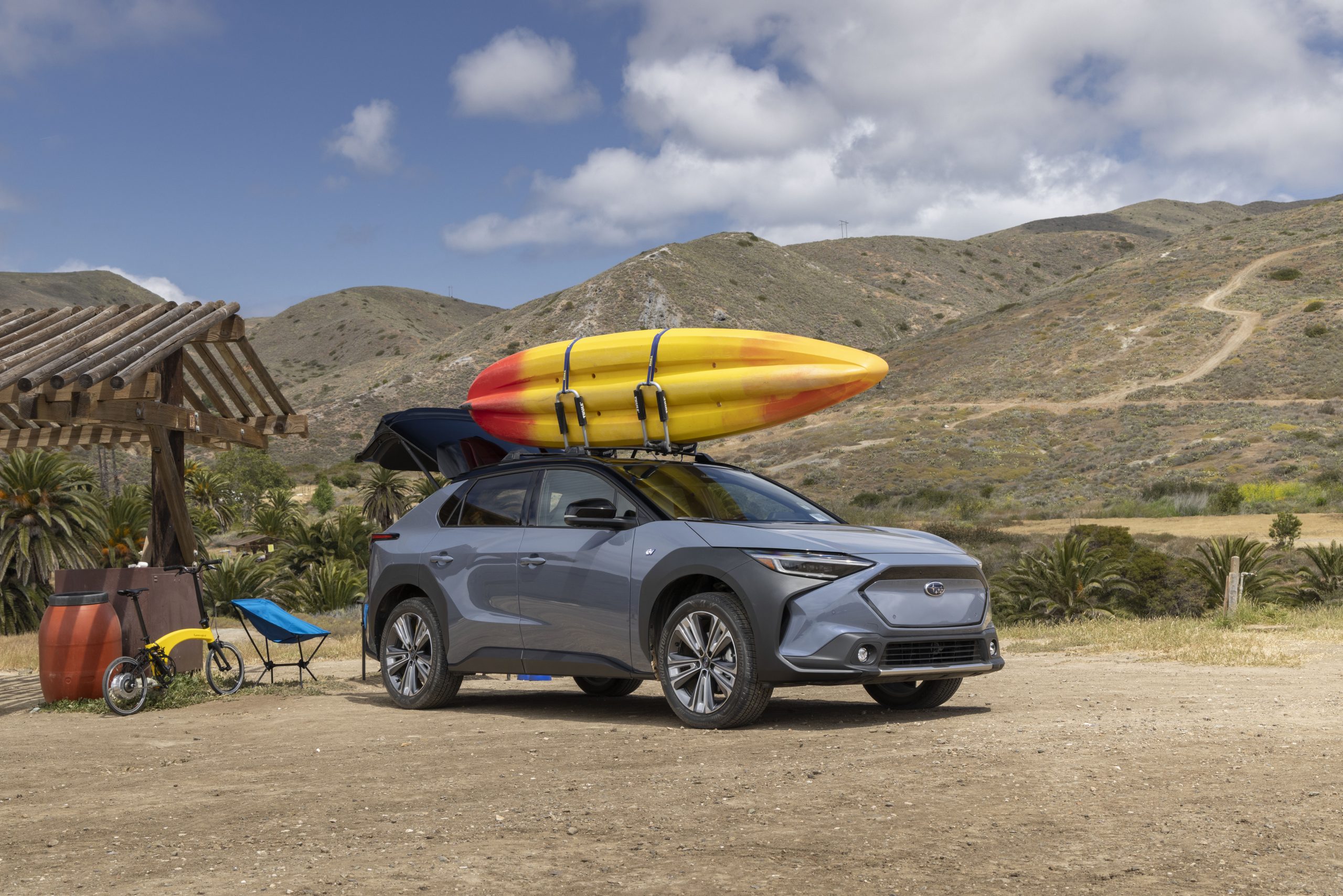
Image Courtesy of Subaru
Some of the fastest electric cars boast dual motors. Others, like the Tesla Model S Plaid, have a triple motor setup for spectacular acceleration. Although, extra motors could be a ticking-off point for efficiency. It reduces the range of EVs. For instance, a Volkswagen ID.4 or a Tesla Model S with AWD gets fewer miles per charge than their two-wheel-drive counterparts.
Should you crave more power and stability in adverse weather landscapes, AWD might be a favorable choice. However, be prepared to bear the cost of reduced efficiency and range per charge. Ultimately, the choice depends on balancing your driving needs with your EV preferences.
What Are the Fastest EV 0-60 Times and Top Speed EVs?
1. Rimac Nevera
Your love for speed will love the Rimac Nevera! It outpaces many electric cars with a 0-60mph speed of just 1.85 seconds – we mean “blink and you’ll miss” kind of fast. The Nevera tops out at 258mph thanks to its 1,888bhp electric motor. The AWD system and sophisticated launch control system help it get that sub-2-second 0-60mph time. When it’s not setting top-speed records, the Nevera gets an OK 200 miles of electric range. As for the price, it can be had for over $2.4 million.

Image Courtesy of Rimac Automobili
2. Lucid Air Saphire
The Lucid Air Saphire zips from 0-60mph in a mere 1.89 seconds! This impressive speed can be attributed to its tri-motor setup, 1,200hp output, and AWD system. The Lucid Air Sapphire is priced at a hefty $250,000. A luxury indeed, but potentially worth it for speed enthusiasts.
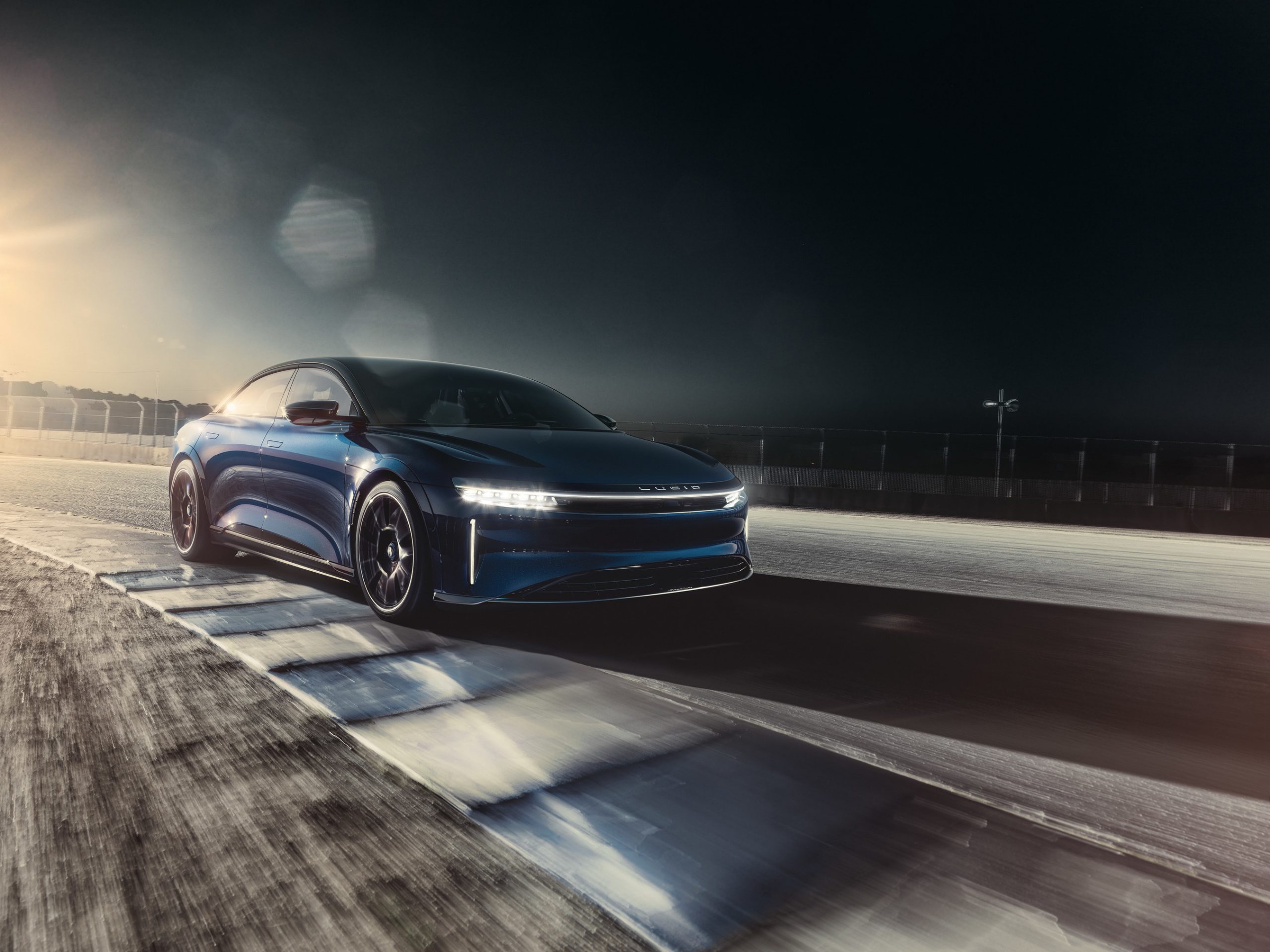
Image Courtesy of Lucid Motors
3. Lotus Evija
You can expect the Lotus Evija to go from 0-60mph in just under 3 seconds, while this hasn’t been confirmed yet, we are guessing it will be closer to 2 seconds flat. The super speed of Evija is attributed to its quad-motor setup, a compact 70kWh battery pack, and aerodynamic carbon-fiber body. The smaller battery back is very in line with Lotus’ mantra of simplifying and adding lightness. It has an estimated top speed is over 200mph and Lotus claims it has 1,972hp. However, be prepared to fork over the estimated $2.3 million price tag.
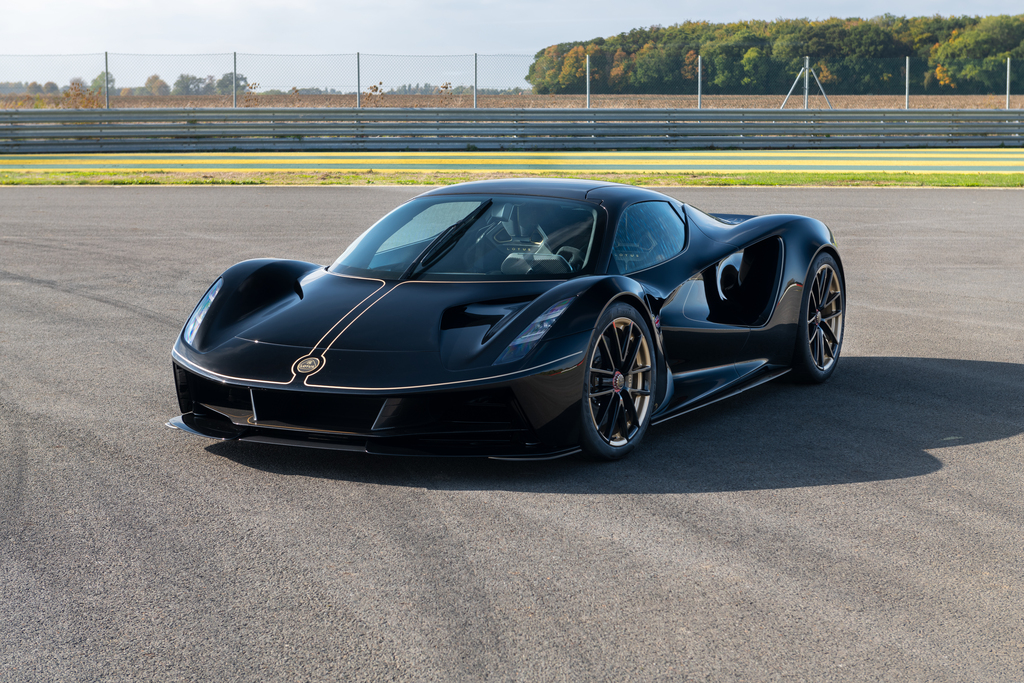
Image Courtesy of Lotus Cars
4. Tesla Model S Plaid
With its astonishing 0-60mph timing of 1.99 seconds, the Tesla Model S Plaid is one of the fastest and most inexpensive ways to go fast in an electric car. The three electric motors generate a peak performance of 1,020 horsepower, propelling it to top speeds with ease. The top speed of the car stands at an awe-inspiring 200mph, with the optional track pack and a quarter-mile speed of an incredible 9.23 seconds.
It’s powered by a 99kWh battery pack, the car can cover a hefty 348 miles when driven sedately, lending it range along with speed. The amazing performance provides a unique selling point, enhancing its appeal to speed enthusiasts.
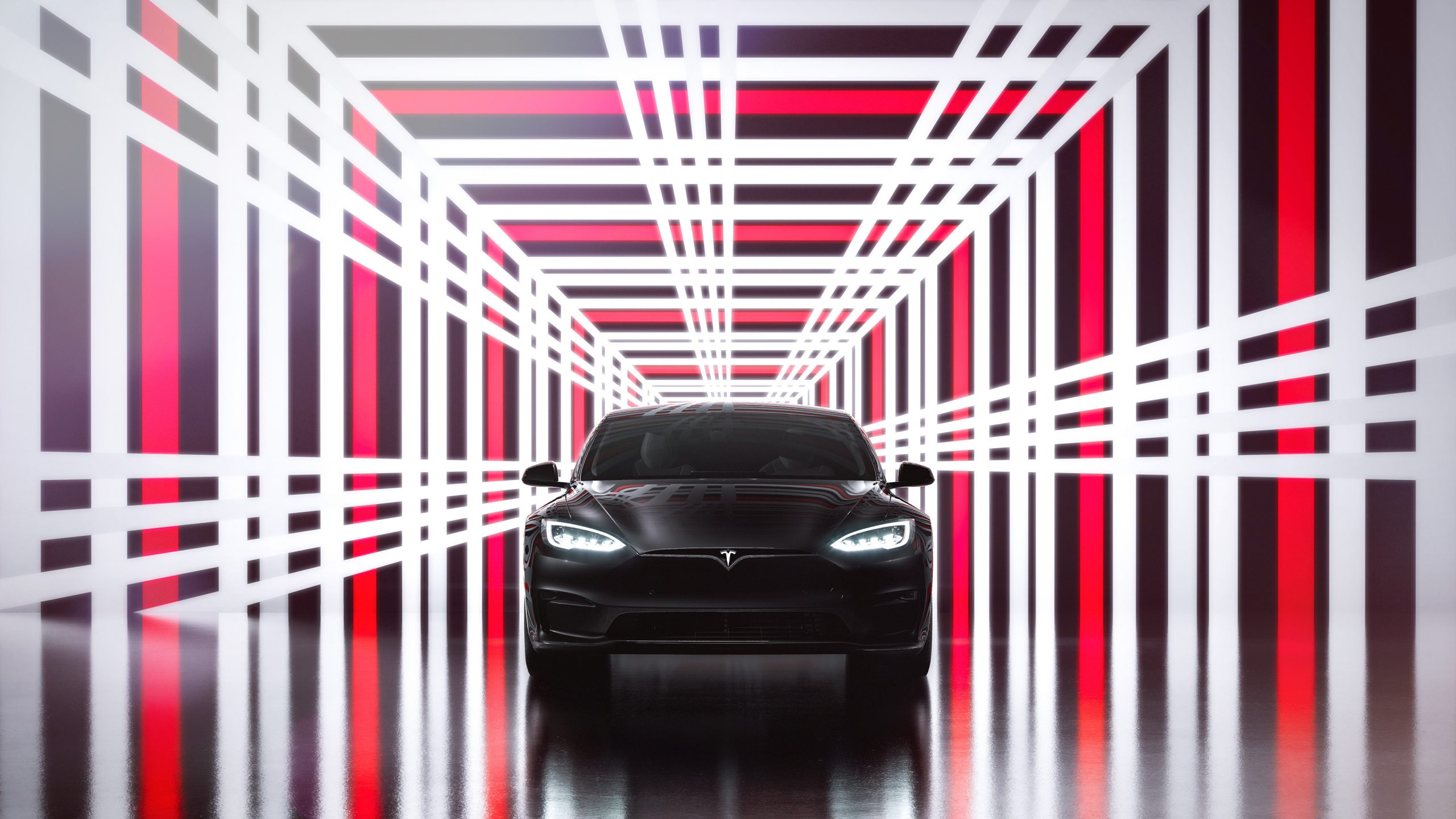
Image Courtesy of Tesla
5. Tesla Model X Plaid
If speed is your passion and you’d like to haul the kids to soccer practice, the Tesla Model X Plaid is the SUV you need. The fastest EV SUV, the Model X Plaid has a 0-60mph time of 2.5 seconds thanks to its AWD tri-motor powertrain assisted by a 1,020hp motor. It has a top speed of 163mph and an estimated range of 333 miles to a charge. While the price is high at $119,990, it is far more affordable than the first few entries in this list.
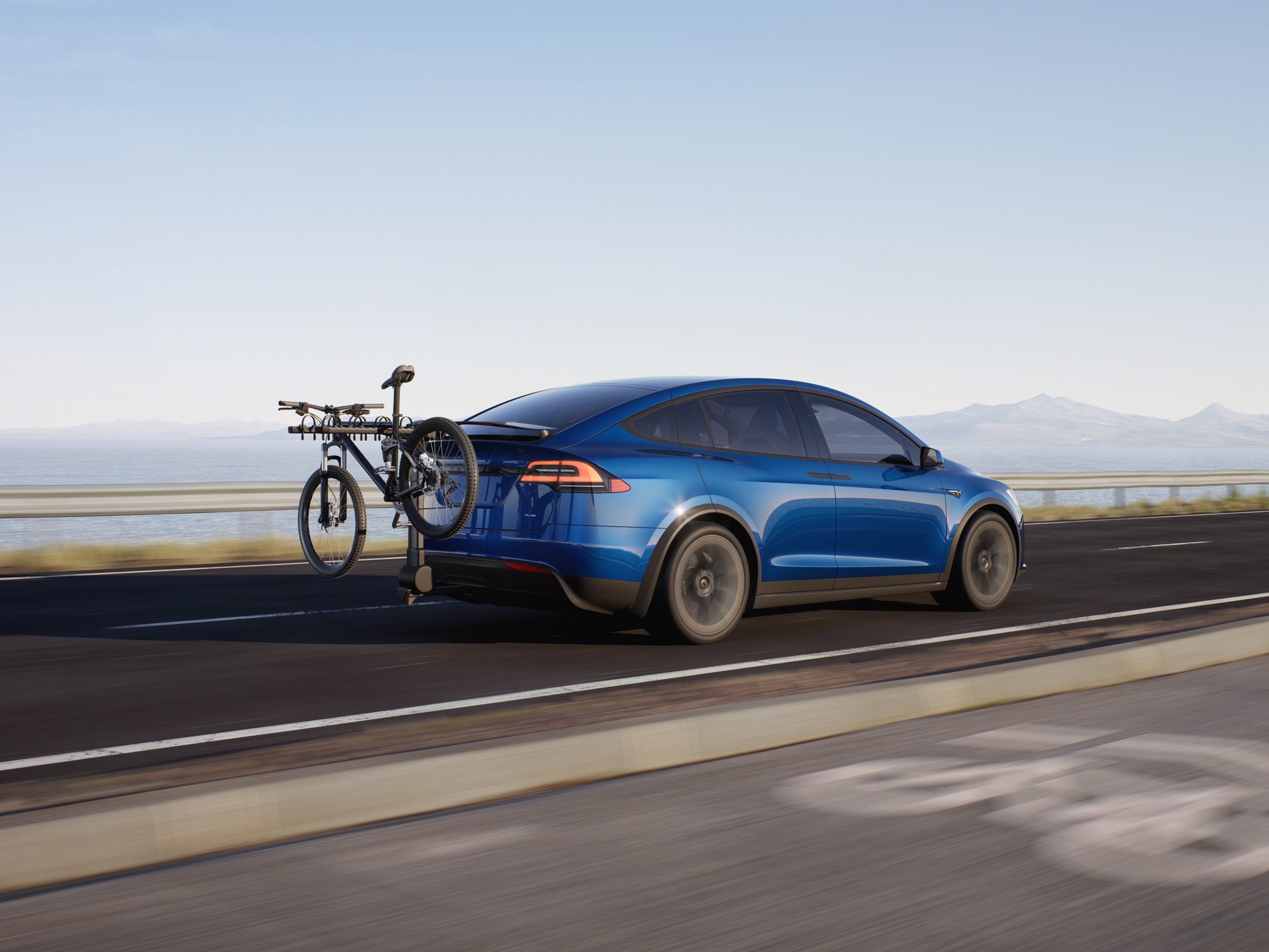
Image Courtesy of Tesla
6. Rivian R1T
If you’re looking for an alternative to your regular gas-guzzling pick-up truck, the Rivian R1T might be your solution. This electric pick-up truck isn’t just energy efficient, it’s also one of the fastest on the market. The R1T can go from 0-60mph in 3.0 seconds. The AWD quad-motor helps put the R1T’s impressive 835hp motor to use.
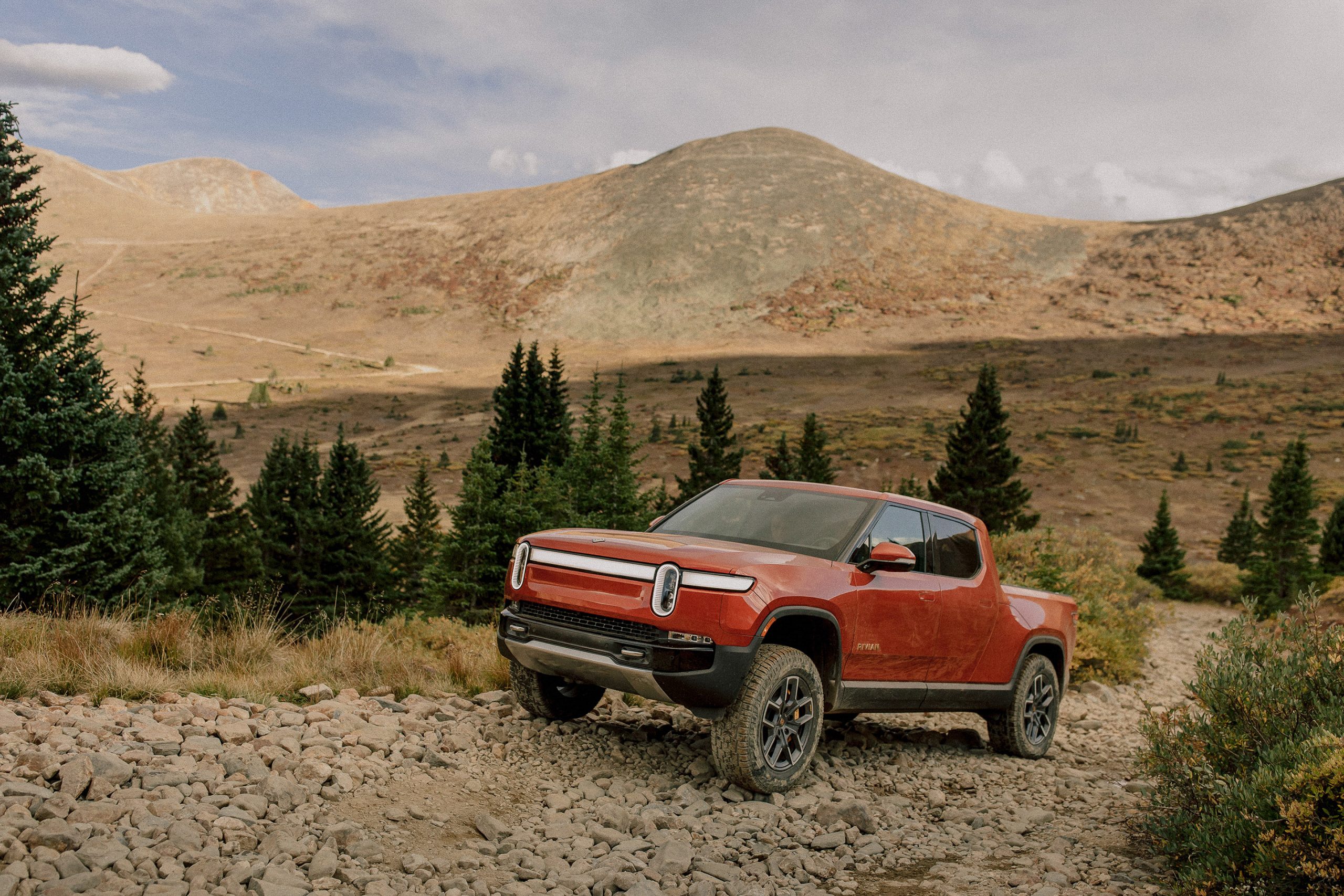
Image Courtesy of Rivian
The Speed of Electric Cars
Electric cars are getting faster, and experts believe they will continue to speed up thanks to advancements in technology. Engineers are using new lightweight materials, making the cars more aerodynamic, and improving the batteries and motors. All of these developments point to faster electric cars becoming a reality.
One exciting goal is for an electric car to go from 0 to 60 miles per hour in under 2 seconds. While some gas-powered cars can achieve this, electric cars have not reached that mark yet. However, because electric car technology is advancing rapidly, it’s only a matter of time before one of them accomplishes it.
Future of electric car speeds.
Another fascinating idea is the creation of electric cars capable of reaching speeds exceeding 300 miles per hour. Currently, only the likes of Bugatti Chiron Super Sport can achieve such speeds. Still, it’s within the realm of possibility that electric cars may join their ranks in the future.
Here’s how they’re working to make electric cars faster:
- Lighter Materials: Engineers are incorporating lighter materials like carbon fiber and aluminum to reduce the weight of electric cars. A lighter car can achieve higher speeds more easily.
- Improved Aerodynamics: Designers are enhancing the aerodynamics of electric cars, allowing them to slice through the air more efficiently and reach higher speeds.
- More Powerful Batteries: Ongoing advancements in battery technology are resulting in batteries with greater energy density. This enables electric cars to accelerate more quickly and attain higher top speeds.
- Enhanced Electric Motors: Electric motors are becoming more efficient at converting electrical energy into speed, contributing to faster acceleration and higher top speeds.
In summary, the future holds promise for faster electric cars, thanks to these advancements in technology.
Featured Image Courtesy of Rimac Automobili
More on EV Universe:
- Explore More EVs: Check out our comprehensive listings page for detailed information on top electric vehicles.
- Shop EV Parts: We’re more than just a source of information. Browse our extensive marketplace for a variety of EV parts and products.
- Insights & Updates: Stay updated in the world of electric vehicles with our insights section. Dive into our in-depth reviews, educational pieces, and the latest news.
- Find Your Perfect EV: Harness our EV Matchmaker tool to explore a diverse range of electric vehicles, filter by your preferences, and discover hidden gems that perfectly match your driving style and budget.



